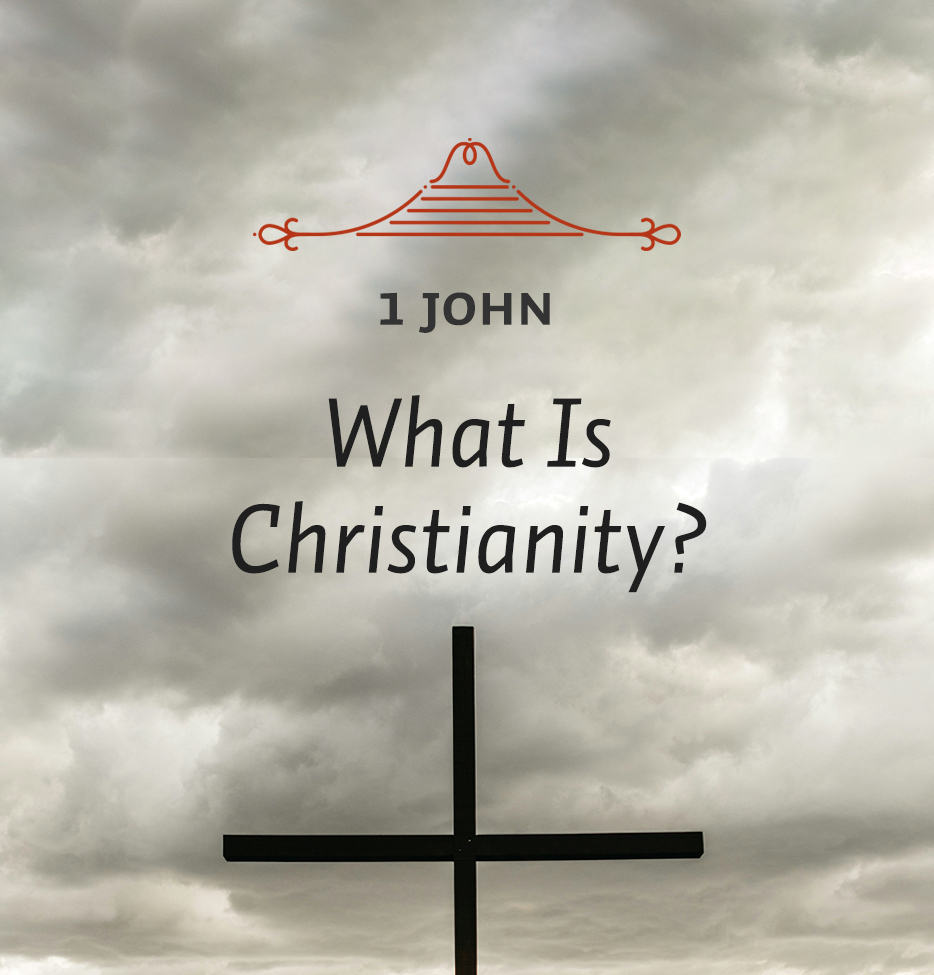In yesterday’s study, we ended by drawing our attention to the phrase “the word of life” and mentioning the way this might be understood at first glance. We said that we would tend to interpret it as “the life-giving Word” or “Christ who gives life.”
There are several reasons for questioning this first and easy identification of “the word of life” with Jesus, however. In the first place, as we read on in the letter we find that it is the word “life” that is actually used of Jesus, rather than “word.” In fact, this occurs in the very next verse, for there Christ is portrayed as that “eternal life, which was with the Father, and was manifested unto us.” Second, it is “life” rather than “word” that is emphasized. This would be strange, granted John’s concern for the centrality of the historical Christ, if the “word” were Jesus. Finally, the phrase “the word of life” does not stand alone as a subject or even object of its sentence but rather as what may best be taken as an independent adverbial clause. In other words, it is not the “word” that is proclaimed, but Christ, who is the content of it.
For these reasons it seems best to take “word” as the Gospel which is centered in Christ, “beginning” as the beginning of the Christian era, and the other phrases as referring to Jesus, who is proclaimed by those who heard, saw, beheld, and touched Him during the days of His earthly ministry.
There is an important principle here. For while it is true that it is impossible to proclaim Christ without doctrine and while it is equally true that neither John nor any other New Testament writer ever disparages any verbalized statement of God’s true revelation, nevertheless it is also true that it is Jesus and not a system of thought which is the essential core of the Christian proclamation. The Gnostics had a system, just as many professional religionists have a system today. But a system is not life, nor does it transform a life. A system in and of itself is nothing. What Christianity has and the others do not have is life, in fact, the life of Jesus Himself, the One who is the creator and sustainer of all life and who as the life is also the light of men (John 1:4). It is Christ, then, who is proclaimed in Christianity.
To proclaim Christ, as John does, is not the same thing as proving that the word proclaimed is true, however. So in the same verses in which he speaks of Jesus as the essence of Christianity John also indicates the grounds for his convictions. These are twofold. On the one hand, there are objective grounds. Confronted with the Gnostic challenge, John gives the greatest place to these. On the other hand, there is that which is subjective. John develops this latter point more fully throughout the letter, though he indicates it here in the phrase that closes verse 2.
John’s objective evidences are centered in the firsthand knowledge of Jesus possessed by himself and the other apostles. The “we” must be taken as this apostolic band, for it is distinct from those Christians to whom John is writing and others (“you,” verses 2 and 3). Others living in a later generation may not have seen Jesus. But the apostles had seen Him, and John reports with authority that not only had they seen Him, they had also experienced Him in such a way that the impression was permanent. Such seems to be the force of the perfect tenses “seen” and “heard” in verses 1 and 3.
There are several channels through which this firsthand knowledge came to the apostles. The first is the ears, for John says that they have “heard” Him. It is possible, as one commentator argues, that this is to be understood of God’s written revelation in the Old Testament period. But it is not necessary to take the phrase in this sense. Indeed, if “the word of life” in verse 1 is to be understood of the Gospel and if in verse 5 John immediately stresses “the message which we have heard of him,” it is more likely that John intends this to be a hearing of the words of Jesus. And what words they were! The officers who had been sent to arrest Him testified, “Never man spoke like this man” (John 7:46). Those who heard Him were privileged. Jesus declared, “Blessed are your eyes, for they see; and your ears, for they hear. For verily I say unto you that many prophets and righteous men have desired to see those things which ye see, and have not seen them; and to hear those things which ye hear, and have not heard them” (Matt. 13:16-17; cf. Luke 10:23-24).






